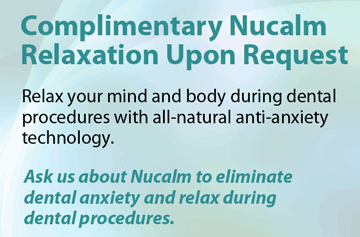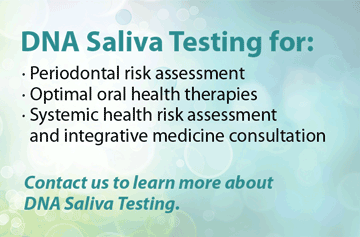
September is Healthy Aging Month, and in October, we celebrate Healthy Hygiene Month. The start of autumn is great time to focus on how we can all stay healthy and vibrant as we get older, especially because our risk increases for gum disease and other inflammatory diseases of the body.
At our practice, we want to remind you that a healthy lifestyle is the foundation of healthy aging, and a key part of that foundation is a healthy smile. Your oral health is directly linked to your overall well-being, and taking good care of your teeth and gums is one of the best ways to protect your health.
The Role of Age in Gum Disease
Several factors contribute to the higher rates of gum disease in older adults:
- Cumulative Effects: Gum disease is often the result of years of plaque accumulation and inflammation. Over a lifetime, even minor or intermittent periods of poor oral hygiene can lead to significant damage to gum tissue and the underlying bone that supports teeth.
- Medical Conditions: Older adults are more likely to have systemic diseases that can worsen gum health, such as diabetes, heart disease, and arthritis. These conditions can weaken the body’s immune response and its ability to fight off the bacteria responsible for gum disease.
- Medications: Many medications commonly used by older adults—including some for high blood pressure, allergies, and depression—can cause dry mouth (xerostomia). Saliva plays a crucial role in washing away food particles and neutralizing acids, and a lack of it allows plaque to accumulate more easily, increasing the risk of gum disease.
- Diminished Immunity: The immune system’s effectiveness naturally declines with age. This makes older adults more susceptible to infections, including the bacterial infections that cause gum disease.
- Physical Changes: Arthritis or other physical limitations can make it difficult for older individuals to maintain proper oral hygiene habits, such as effectively brushing and flossing.
- Restorations and Appliances: The presence of dental restorations like bridges, crowns, or dentures can create areas where plaque is more difficult to remove, contributing to a higher risk of gum disease.
The Connection Between Your Mouth, Body, and Brain
Did you know that problems in your mouth can affect the rest of your body? Conditions like gum disease (periodontitis) are more common as we age and have been linked to serious health issues, including heart disease, stroke, and diabetes. The bacteria from gum disease can enter your bloodstream and cause inflammation throughout your body.
Emerging research also suggests a strong link between oral health and brain health. Studies indicate that the same inflammation caused by gum disease may contribute to cognitive decline and conditions like Alzheimer’s disease. By maintaining good oral hygiene and keeping up with regular dental check-ups, you’re not just protecting your teeth—you’re taking a proactive step to protect your brain health, too.
Other Common Oral Health Problems that Increase with Age
As we age, our bodies go through natural changes, and our oral health is no exception. We become more susceptible to issues that can impact our comfort and well-being. Here are some of the common oral health problems that increase with age and how we can help you manage them:
- Increased Risk of Cavities: You might think of cavities as a childhood problem, but the risk for tooth decay actually increases as we get older. This is often due to receding gums, which expose the softer root surfaces of teeth, making them more vulnerable to decay.
- Worn-Down Teeth: After a lifetime of chewing and grinding, our tooth enamel can naturally wear down. This can lead to increased tooth sensitivity and a higher risk of cracks and fractures.
- Oral Cancer: The risk of oral cancer increases with age, especially for individuals with a history of tobacco or alcohol use. Regular dental exams are crucial because they include an oral cancer screening, allowing for early detection and treatment.
Understanding the Side Effects of Your Medications
As people age, it’s common to take more medications to manage various health conditions. We want you to be aware that an increasing number of medications can correlate with potential side effects that impact your oral health.
One of the most common side effects is dry mouth (xerostomia), which can be caused by hundreds of different drugs, including those for blood pressure, allergies, and depression. A lack of saliva leaves your teeth and gums vulnerable to decay and gum disease.
What you can do:
- Tell us about all of your medications at your next appointment. This helps us create a more effective oral hygiene plan for you.
- Stay hydrated by sipping water throughout the day.
- Use special rinses or lozenges designed to help with dry mouth. We can recommend some products for you.
The Role of Our Dental Team in Your Health Journey
Your smile is often your first impression, so make it a lasting one with exceptional oral care. This is where our amazing dental hygienists, Maggi and Erica, play a crucial role. They are on the front lines of your preventive care, working with Dr. Comfortes to ensure your mouth remains a healthy foundation for your entire body. Their daily tasks—from comprehensive cleanings and advanced diagnostics to oral cancer screenings and patient education—are essential for preventing cavities, gum disease, and other oral health issues.
At your next appointment, ask us about the cutting-edge science that enables us to help you build and retain total health. This includes:
- The Bale Doneen Method, a heart-focused approach to disease prevention.
- OralDNA saliva testing, which gives us precise insights into the bacteria living in your mouth.
- The American Association of Oral System Health (AAOSH), an organization that sponsors advanced training in research-based methods that directly impact your care.
We are committed to helping you understand the link between your oral health and serious conditions like heart disease, diabetes, and Alzheimer’s. By maintaining excellent oral health, you can support your cognitive well-being, and we are here to partner with you on that journey.





 The general, cosmetic and reconstructive dental practice of Encino dentist Dr. Isaac Comfortes is devoted to restoring optimal oral health, which supports whole body health and enhances the natural beauty of smiles.
The general, cosmetic and reconstructive dental practice of Encino dentist Dr. Isaac Comfortes is devoted to restoring optimal oral health, which supports whole body health and enhances the natural beauty of smiles.